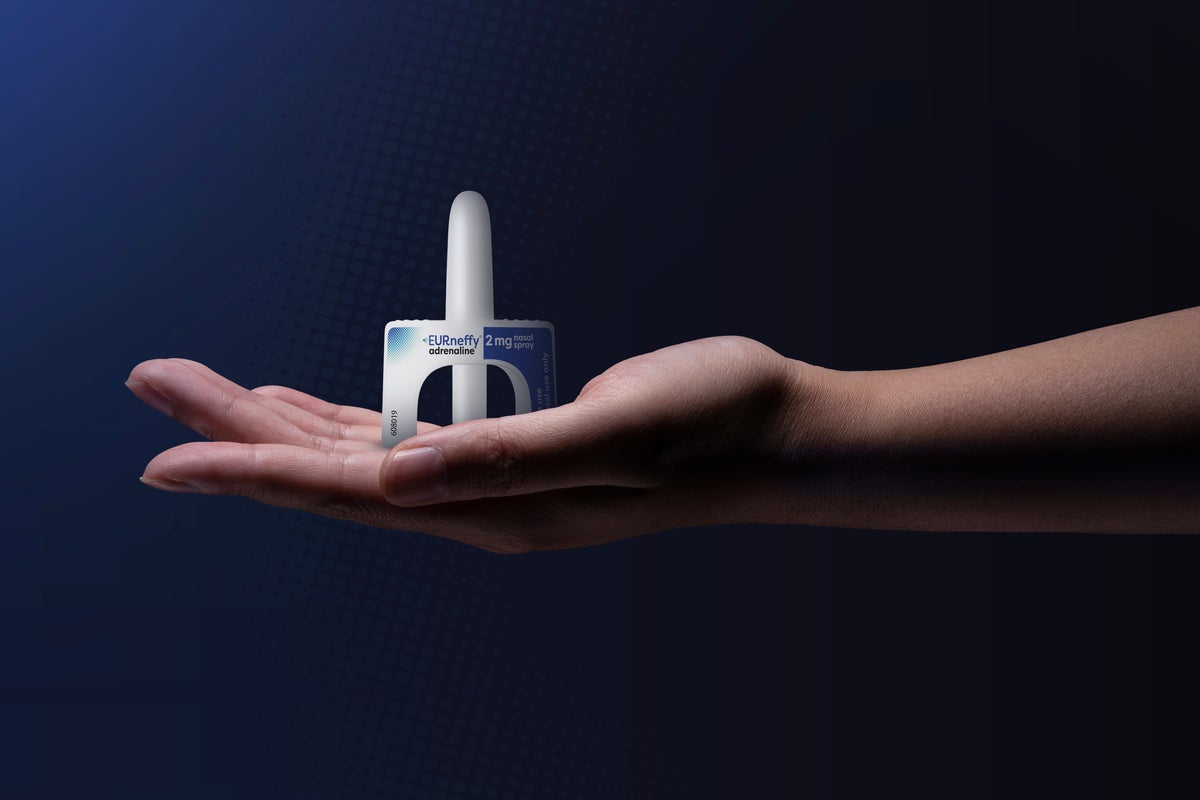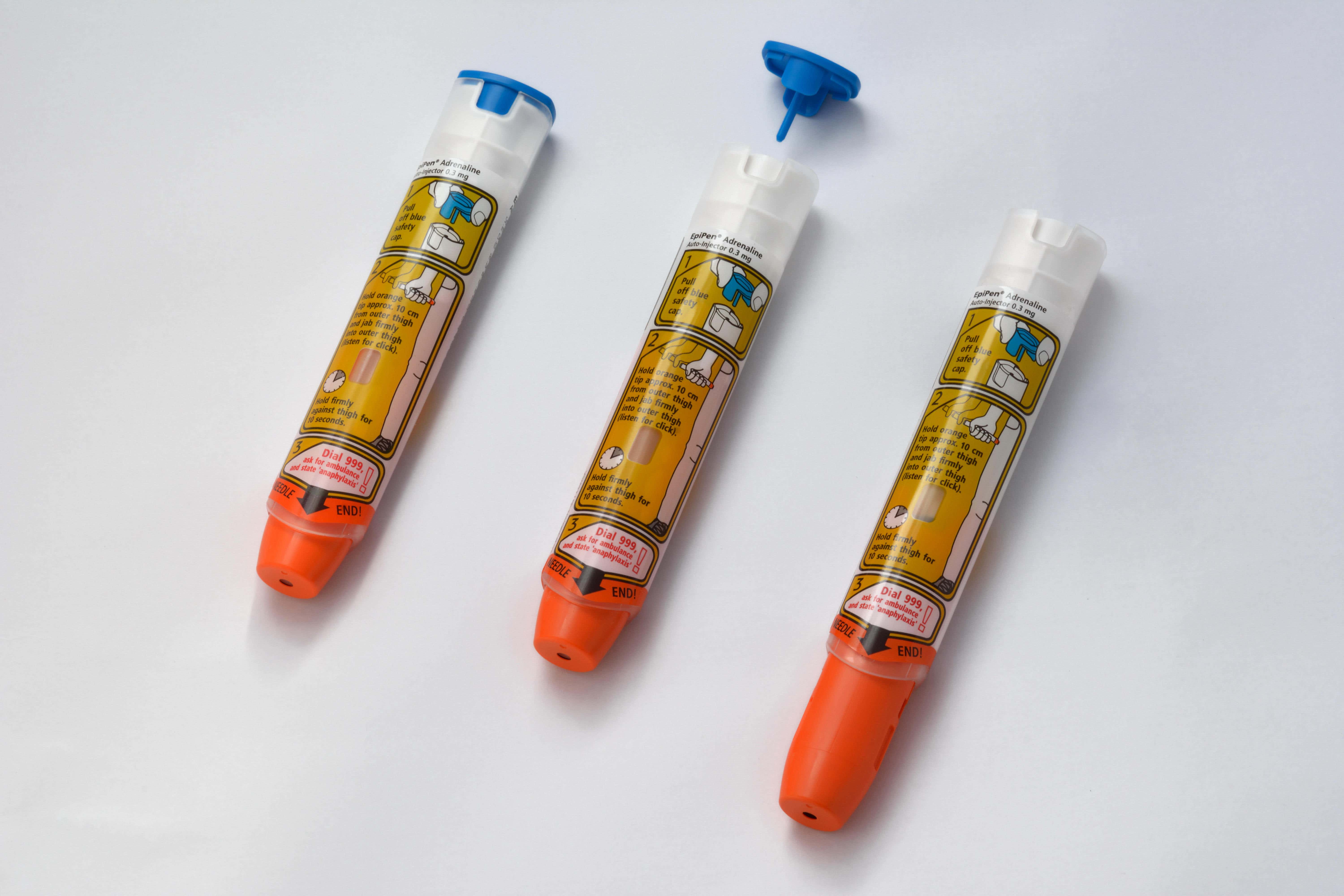Life-saving nasal spray for anaphylaxis now available in UK

A new emergency treatment for allergic reactions will now be available in the UK – in the form of a nasal spray.
The first needle-free emergency treatment for anaphylaxis – in the form of a nasal spray – will now be available in the UK.
The Medicines and Healthcare products Regulatory Agency (MHRA) has approved the adrenaline (epinephrine) nasal spray (EURneffy), the first needle-free emergency treatment for anaphylaxis.
Tanya Ednan-Laperouse, founder of food allergy charity the Natasha Allergy Research Foundation, voiced delight at the news.
She said the spray is an “easier and more accessible” way of administering life-saving medication than auto-injectors, and offers another option to prevent delays to treatment.
Julian Beach, MHRA interim executive director of healthcare quality and access, said: “Patient safety is our top priority, which is why we’re pleased to approve the first needle-free nasal spray formulation of adrenaline for the emergency treatment of anaphylaxis in the UK.
“Until now, adrenaline for self-administration has only been available via auto-injectors.
“While this represents an important new option, adrenaline auto-injectors remain a vital and potentially life-saving treatment, giving people experiencing anaphylaxis valuable time before emergency help arrives.
“We continue to encourage everyone at risk of severe allergic reactions, and those around them, to familiarise themselves with how to respond in an emergency.
“Resources and guidance are available on the MHRA website to help people be prepared.”

Anaphylaxis is a sudden and life-threatening allergic reaction that can cause a drop in blood pressure and breathing difficulties.
EURneffy is intended for use in adults and children who weigh 30kg (about 66lb) or more, and can be used even if people have colds or blocked noses.
It is a single dose nasal spray that delivers its entire contents (2mg) upon activation.
People are reminded the plunger should not be pressed before inserting the product into the nostril, otherwise the single dose will be lost.
The MHRA said patients should always carry two nasal sprays with them in case a second dose is needed, and tell family and friends where it is.
Mrs Ednan-Laperouse’s daughter Natasha died in 2016 after eating a Pret baguette containing sesame.
She said: “The number of people experiencing anaphylaxis triggered by food has increased dramatically over the last 20 years.
“But we know that some people are reluctant to use the current adrenaline auto-injectors in the event of anaphylaxis due to a fear of needles and hurting someone.
“This can delay administering adrenaline, and in a food allergy emergency every second counts.
“The nasal spray will be an easier and more accessible way of administering this life-saving medication, and is great news for people living with food allergies.
“Spare supplies of these nasal adrenaline devices should now be another option available to schools.”
A spokeswoman for the drug firm behind the spray, ALK, said: “The market launch in the UK is expected within the coming months once market access negotiations are completed.”
ALK is having ongoing discussions to agree a price with the Department of Health and Social Care.
Once an NHS list price has been agreed and the product is available, doctors will be able to prescribe the nasal spray.
[title_words_as_hashtags



